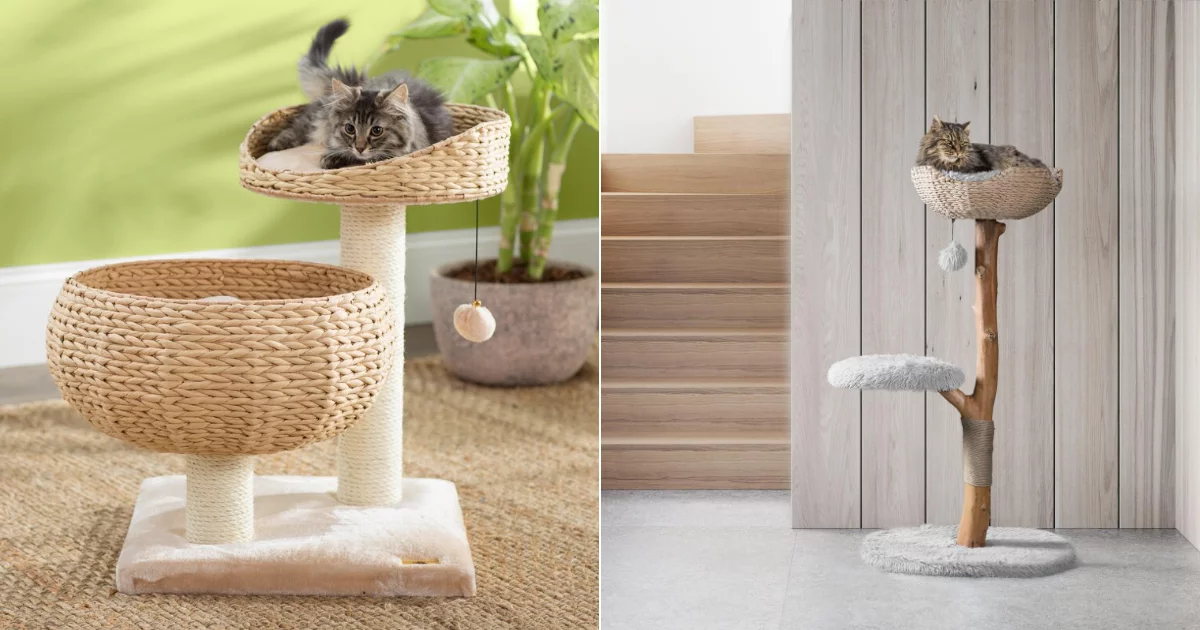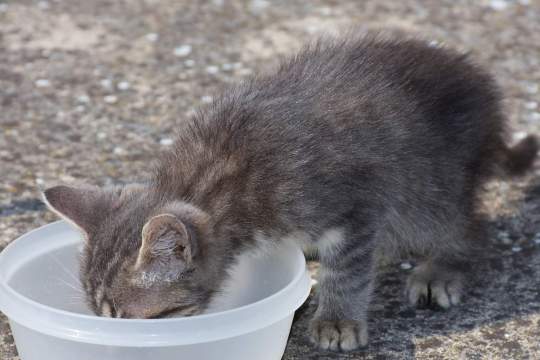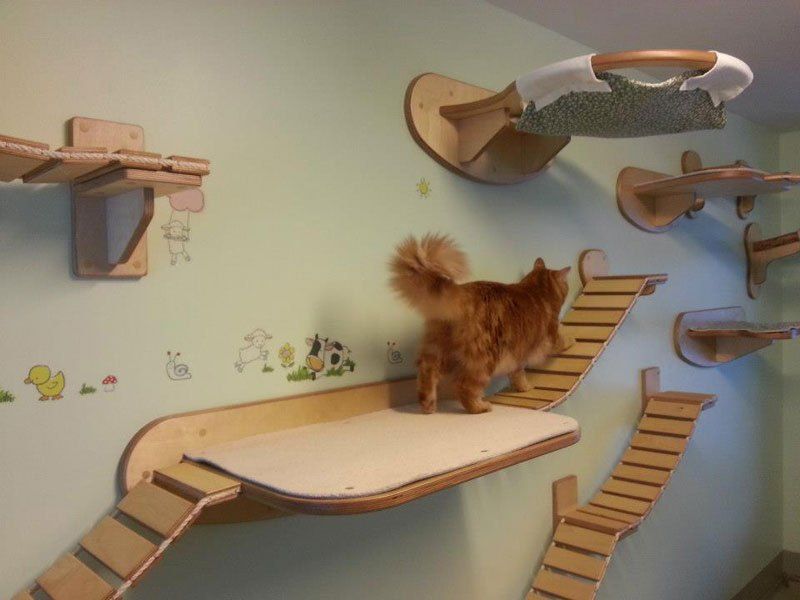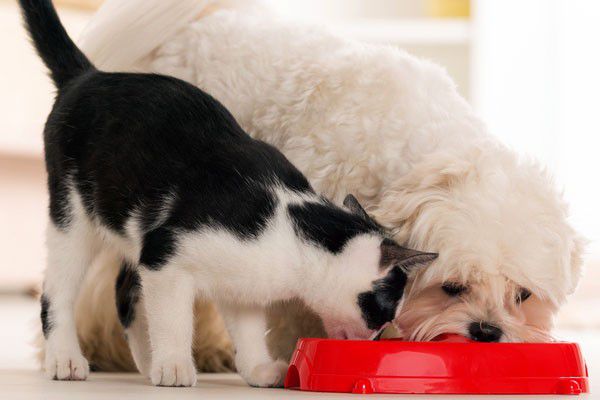If your cat throws up undigested food, it can be a cause for concern. It can also be a sign of a serious underlying problem, so it’s important to diagnose the reason and take action if needed.
One common reason for regurgitation is eating too quickly or a sudden change in feeding schedule. If this is the case, it’s important to gradually transition your cat over to a new diet or feeding schedule. Here we will discuss about why is my cat throwing up undigested food.
Hairballs
When you see a cat throw up undigested food, it can be an indication that they have an internal problem. It can be related to pancreatitis, indigestion, intestinal obstruction, eating too quickly, or even depression or stress.
It can also be a sign of hairballs. These are often slender and tubular-shaped, looking like a wad of fur that has been forced up through the esophagus. They may look a bit like feces, but they don’t smell or taste of feces.
The most common cause of hairballs is that your cat is unable to pass their loose and dead fur through their digestive tract. This is because their tongue has tiny hook-like structures that can catch and swallow hair when they groom themselves. Most of this hair passes through their gastrointestinal tract with no problems, but some of it stays in their stomach.
This hair can then form into a ball of hair, which your cat will vomit up. If your cat is vomiting multiple times over a period of 24 hours, it could be an indication that they are suffering from a blockage in their intestine.
If this is the case, your veterinarian will need to perform a variety of tests to diagnose the issue. These tests include skin scrapings to look for mites or ringworm, blood work, abdominal X-rays, ultrasound, cytology, a hypoallergenic food trial, and biopsies of the gastrointestinal tract or skin.
Generally, hairballs aren’t dangerous to your cat, but they can become extremely large and cause a blockage in their stomach or small intestine. This can lead to severe symptoms including vomiting, a hard time defecating, and abdominal pain. If this happens to you, call your vet immediately.
Eating too quickly
You may think it’s a normal part of your cat’s appetite, but eating too quickly can be harmful to their health. They can regurgitate food or throw up undigested food, which is a sign that they aren’t getting enough nutrients.
In order to stop this behavior, you need to find out why your cat is eating too fast. It could be for a variety of reasons, including medical or behavioral issues.
One of the most common reasons why cats eat too quickly is because they’re bored or lonely. They may be anxious about another feline in the household, or they’re worried that their food is going to get stolen.
Some pets eat too quickly due to underlying medical conditions like hyperthyroidism or diabetes mellitus. Alternatively, they might be malnourished because of parasites or other illnesses.
If you’re worried about your cat’s weight, you should visit a vet. They can perform an exam and provide recommendations on the best diet for your pet.
Your veterinarian can also recommend slow feeder bowls or puzzle toys to help your cat slow down their eating process. You should also make sure your cat has plenty of water to drink.
Other possible causes of eating too quickly include the presence of multiple cats in a house, which can trigger territorial eating habits. Especially for dominant cats, this can lead to them hoarding their share of the food and leaving it available for other cats to take.
Other possible underlying reasons for vomiting include esophageal problems, obstruction of the digestive tract, hairballs, and dehydration. If your cat has a history of vomiting, you should visit the vet for an exam.
Indigestion
When your cat is throwing up undigested food, it can be a sign of trouble. Before you get too concerned, though, it’s important to understand what is causing this problem and what can be done about it.
There are many possible reasons why your cat is throwing up undigestible food. However, one of the most common is indigestion.
Symptoms of indigestion include feeling full or bloated, discomfort in the upper abdomen and pain that sometimes goes through the back into the chest. This pain is often triggered by certain foods, including spicy, fatty or fried foods.
You may also experience a sour or bitter taste in your mouth. Heartburn, another symptom of indigestion, is the burning sensation that occurs in the chest when stomach acid comes into contact with the lining of your esophagus (the tube from your throat to your stomach).
It is very common for people to mistake the symptoms of indigestion and heartburn. In this case, your doctor will want to rule out serious underlying health conditions such as gastroesophageal reflux disease (GERD) or a stomach ulcer.
In some cases, indigestion can be treated with simple lifestyle changes. These can include avoiding smoking, alcohol and rushed meals.
If indigestion isn’t getting better after two weeks, you should see your doctor. A doctor can also prescribe medication to help relieve your indigestion.
The treatment for indigestion is generally straightforward and often involves medications, supplements and change in diet. You should try to make changes in your lifestyle that will improve your digestion, such as reducing fats and spices and drinking water after eating.
In rare instances, a serious underlying condition can be the cause of your indigestion. In this case, your doctor may recommend an endoscopy to confirm the diagnosis.
Constipation
Constipation is when your bowel (large intestine) does not move waste or stool out. This can cause pain, bloating, and other symptoms.
As food passes through your colon, it absorbs water and combines with digestive enzymes to form stool, or waste. The stool then sits in your rectum until it is ready to pass out of your body as a bowel movement.
If you do not have a bowel movement for several days, this can be called constipation. It is a common problem in adults and children, but it can be a serious problem in elderly people.
Sometimes a change in your diet and regular exercise can help you get rid of constipation, or it may just be that you need to relax a little more and listen to your body. Your doctor may also recommend medications to soften your stool, such as laxatives or stool softeners.
Another thing that can cause constipation is if you do not drink enough water. If you are dehydrated, your stools will become hard and dry because the colon tries to reabsorb more water.
In this case, you can try drinking more water and incorporating more fiber-rich foods into your diet. These foods will help your bowel function properly and help you stay well hydrated.
In most cases, constipation can be relieved by changes to your diet and lifestyle. It can also be treated with medication, supplements, and medical procedures. Some conditions can exacerbate your constipation, such as those that are related to underlying medical problems or diseases. For example, cancer treatments can make your bowel movements less frequent or difficult.
Stress
Stress is a biological response to a perceived threat. It triggers the body’s innate fight-or-flight mechanism and floods your system with chemicals and hormones to prepare you for the moment when it’s time to take action.
It’s a normal reaction to life’s demands, but it can be harmful when you feel overwhelmed and out of control. You may experience acute stress or chronic stress, both of which can have negative effects on your health.
Acute stress lasts for a short period of time and can be caused by a major life event or change, such as a job loss, injury, illness or a family problem. It’s a good idea to take steps to manage your stress so that it doesn’t become an overwhelming, long-term issue for you and your family.
However, if your stress is chronic and you are experiencing ongoing distress, it’s important to get help from a doctor or mental health professional. Having chronic stress can be an indicator of depression or anxiety and may cause other health problems, such as digestive issues.
Symptoms of stress can include feelings of anger or anxiety, physical symptoms such as headaches, muscle aches, a racing heart or stomach upsets, and problems sleeping or eating. If you are feeling stressed, talk to a friend or family member and try relaxation techniques.
If your cat is vomiting up food regularly, you may want to change their diet to a more sensitive one or consider feeding smaller amounts throughout the day. This will also help them to slow down their digestive process, which is often a common cause of frequent vomiting. If your cat’s vomiting persists, it’s a good idea to call your veterinarian to see if there are any other causes of the vomiting that need to be treated. To know more about why is my cat throwing up undigested food just follow us.






